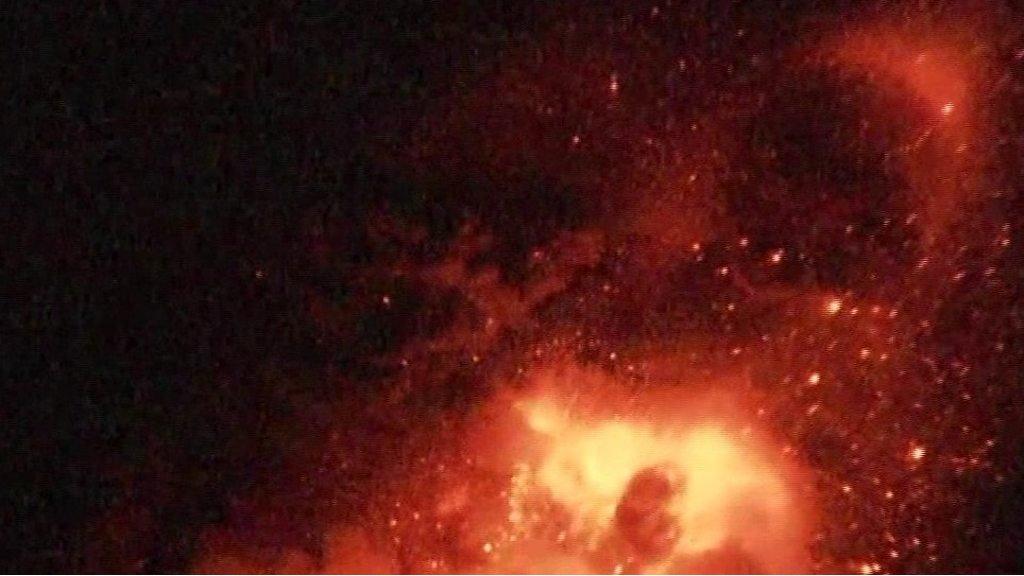White island: Scientists invent new volcano alert system
- Published
- comments
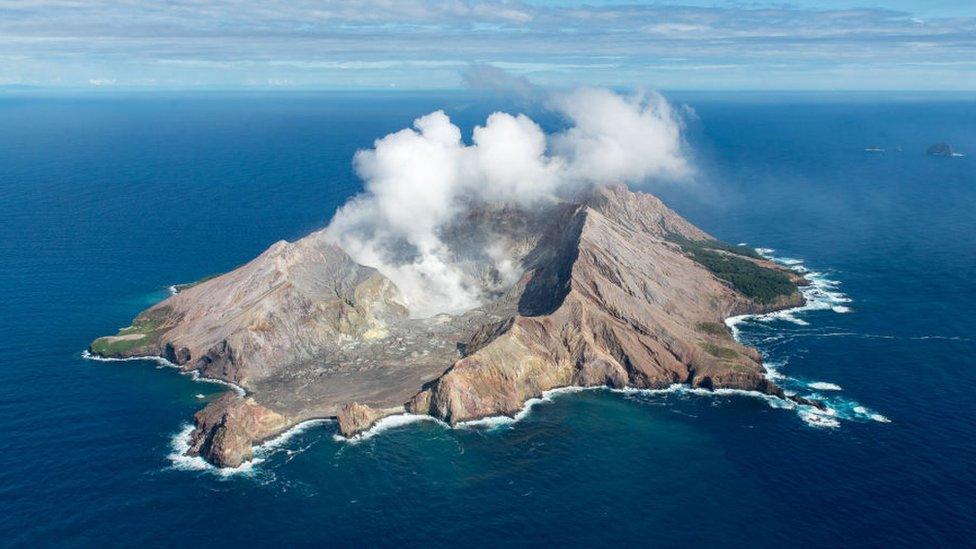
White Island erupted last year while a tourist group was visiting it
Scientists in New Zealand have invented a new volcano alert system which it is hoped can give more advanced warning of eruptions.
The new system looks at information from past eruptions to see what happened before them and is designed to give an automated warning if the same signs are seen in the future.
Scientists who have developed it say that if the technology was available last year it could have provided more warning ahead of the 2019 eruption on White Island.
Twenty one people died when the country's most active volcano, also called Whakaari, suddenly erupted last December with tourists on it.
Shane Cronin from the University of Auckland, told the BBC the current system had been "too slow to provide warnings for people [on] the island."
"The way we warn for volcanoes was good enough 10 years ago but it's not actually moving with the times."
Different countries use different systems for predicting volcanic eruptions, with warning systems specific for each volcano.
It is impossible to predict the exact date of an eruption. Volcano warning systems are based on a probability of an eruption or hazard.
How does the new system work?
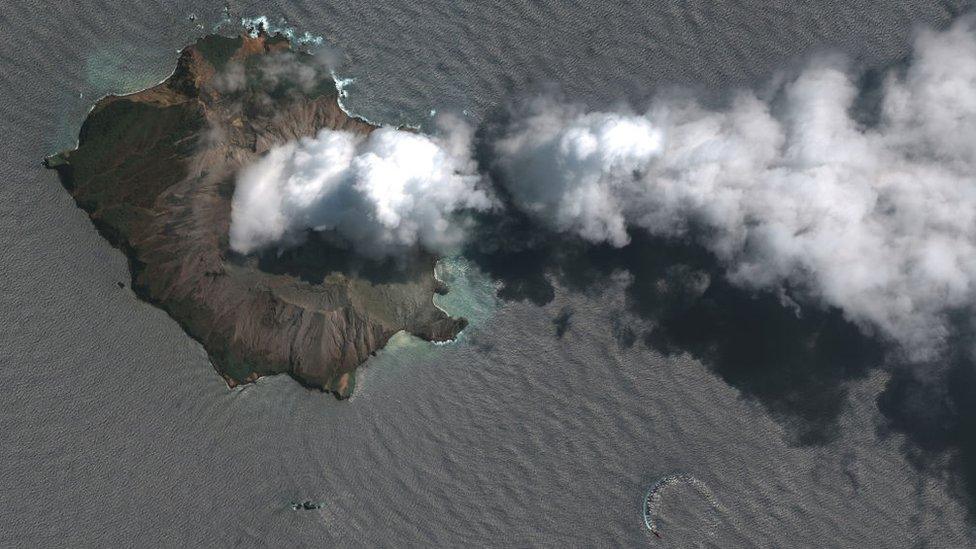
A computer system has analysed data collected over the past nine years from White Island, and by looking at that data it has spotted patterns that indicate that an eruption was about to happen.
In the tests it successfully predicted four out of five past eruptions at White Island - missing only one which had no magma, and so had different warning signs to the others.
It will use this information to spot anything unusual and if it notices anything worrying it will give an automated warning.
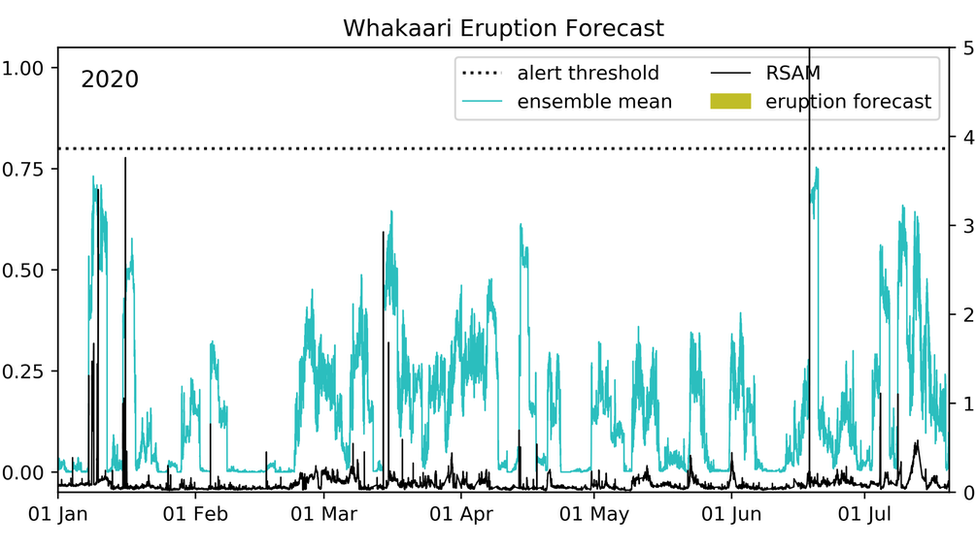
An example of some of the data produced by the alert system
The team is now trying to find a way to teach the computer how to predict eruptions at other kind of volcanoes, with shallow surface eruptions.
How is the new system different to the previous alert system?
The old system collects data at the time and analyses it with machines, programmed with an algorithm to look for changes.
Algorithms are a set of rules to be followed by a computer, based on calculations.
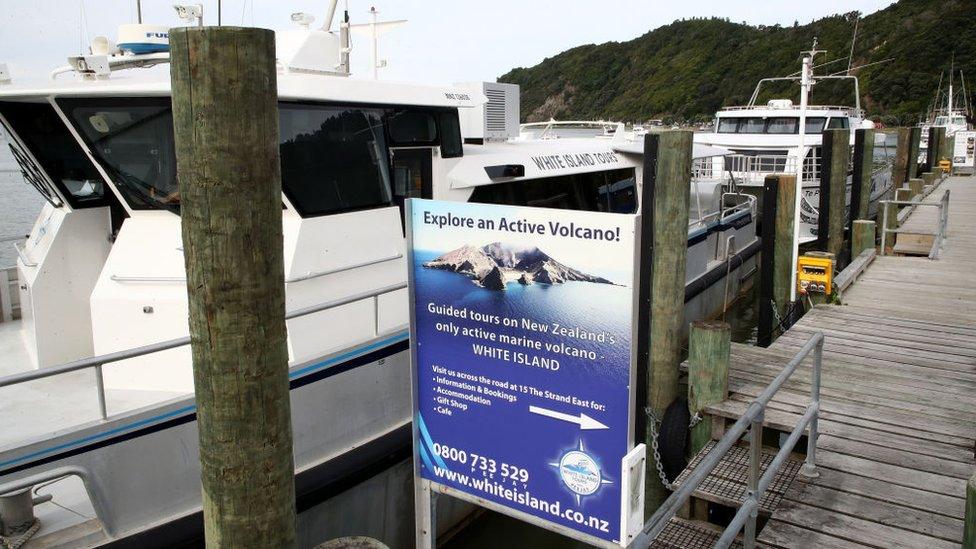
But after this process the information is assessed by a panel of experts which means it takes longer for warning to be given.
Despite some seismic activity in the weeks before the White Island explosion, the sudden and dramatic nature of the eruption took everyone, including authorities, by surprise.
Experts say that if the new system had been in place last December, it could have alerted officials up to 16 hours before the eruption took place.
Will the new system start being used?
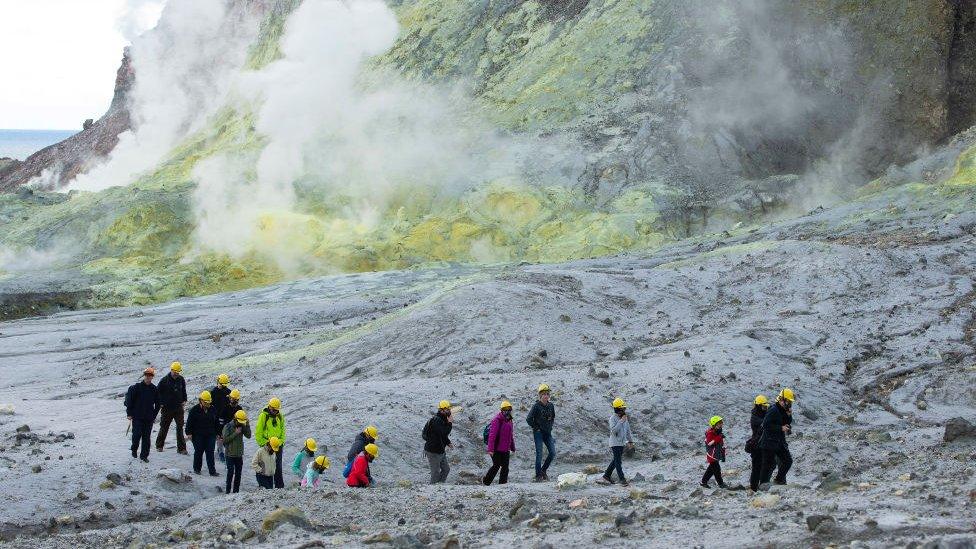
This picture shows White Island six month before the volcano erupted
It's likely that a combination of both systems could be used.
New Zealand's official volcano monitoring agency, GNS Science, said the new system could be a "potentially useful addition" to its own systems, but cautioned that it had its limitations.
Another scientists involved in the research, Dr David Dempsey told BBC News: "The system is not 100% to catch every future eruption."
"When it does raise an alert for suspicious activity, it does not guarantee that an eruption will occur. However, it is an improvement over the current system that provides no short term warnings."
Why does a volcano erupt?
The Big Question: Why do volcanoes actually erupt?
A volcano is a rupture on the Earth's crust, which allows lava, ash, and gases to escape, when magma rises to the surface.
It is thought the White Island eruption was a hydrothermal explosion which is when water under the ground heats up and turns rapidly to steam. This builds up enough pressure to cause an explosion.
You can read more about why volcanoes erupt here.
- Published10 December 2019
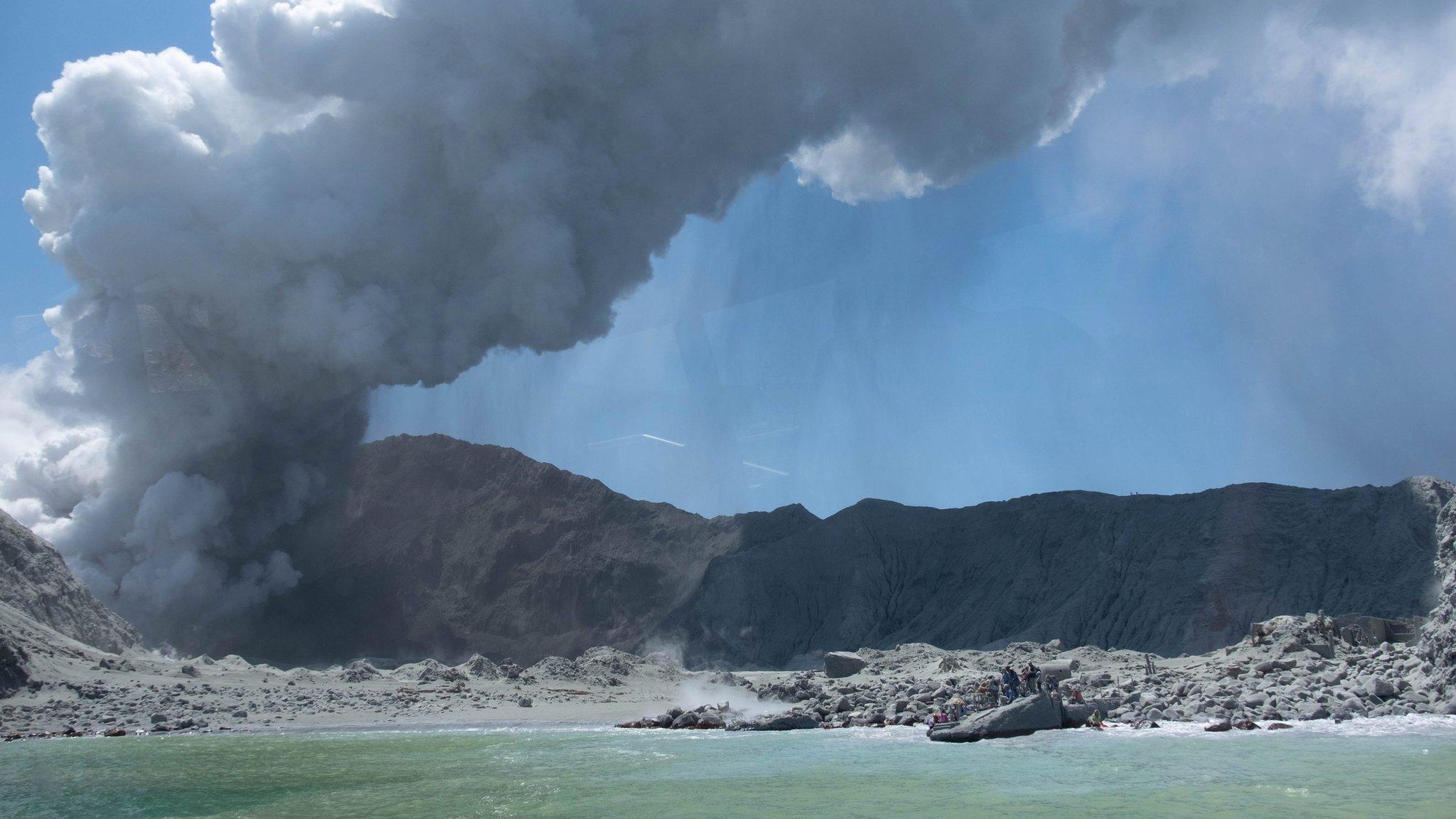
- Published16 April 2021
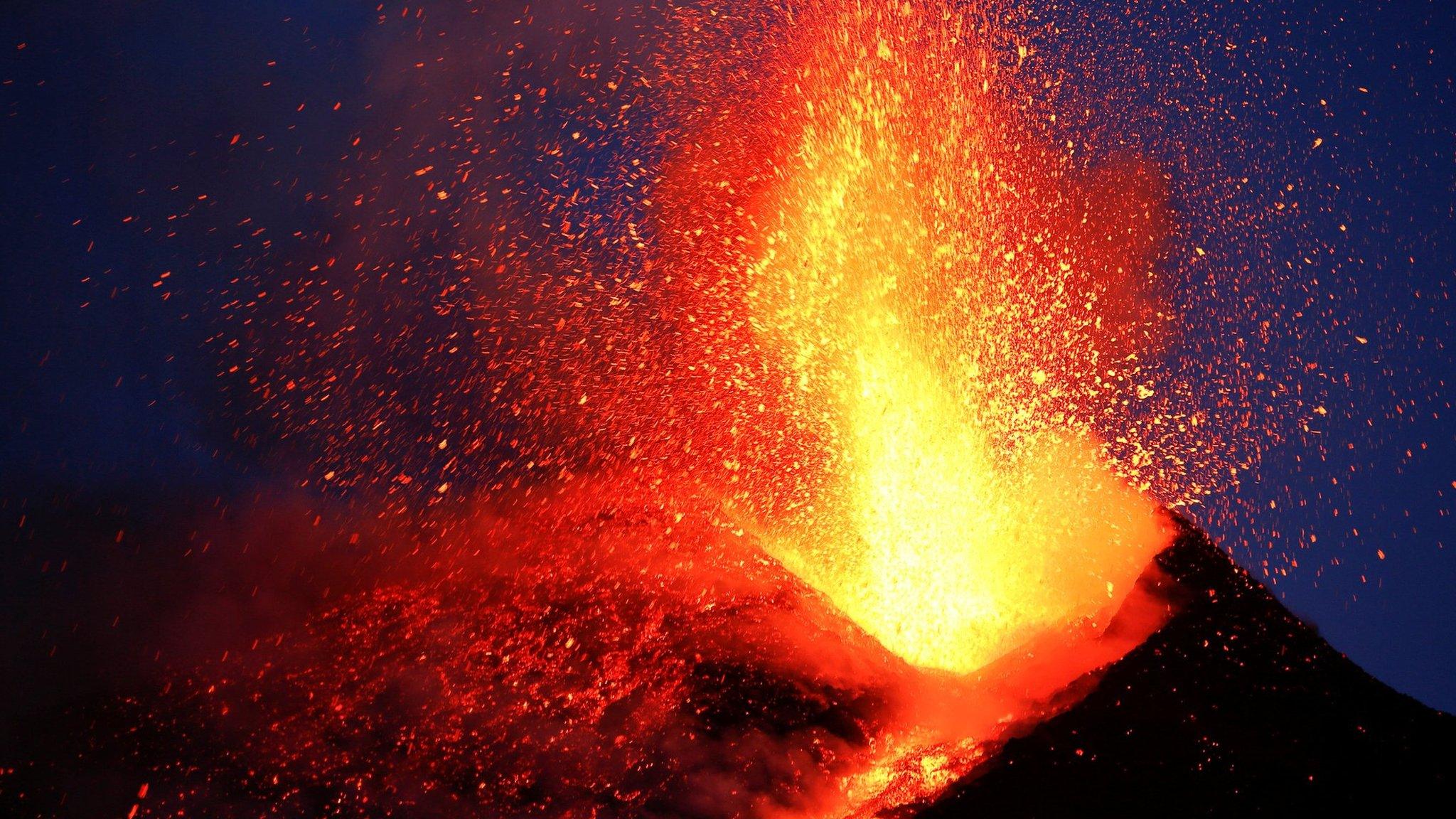
- Published8 March 2018
